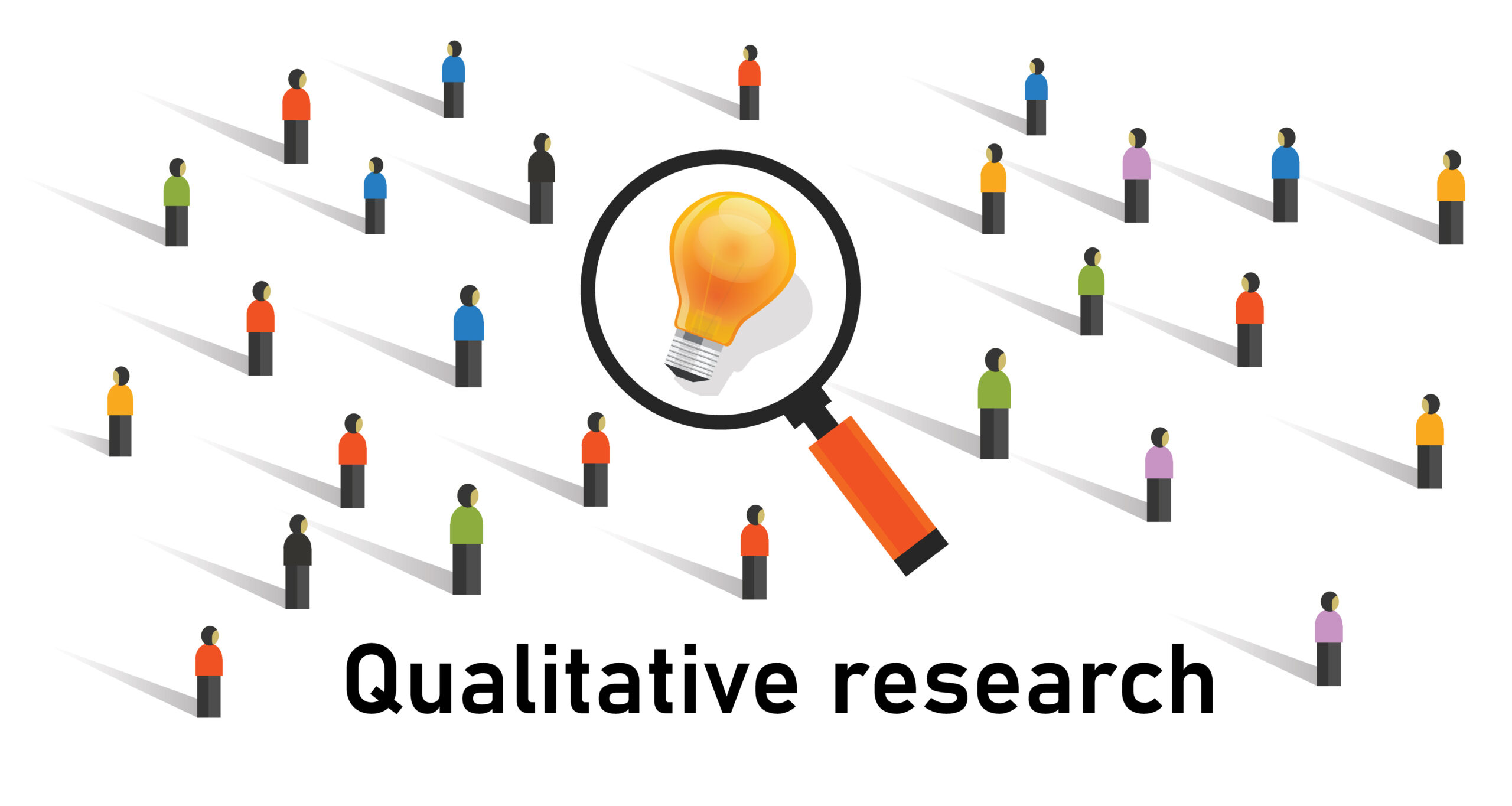
Qualitative research is a systematic approach to exploring meanings, concepts, or experiences without primarily relying on numerical data. The research process can be intricate, but understanding each step at its very core can help researchers navigate the complexities more effectively and stay on track.
This article will outline the key qualitative research steps to guide you from conception to completion.
Define The Question And Objectives
To establish a clear focus and direction for the study, you must clarify the research question and objectives. They are the backbone that guides the steps—such as methodology selection, data collection, and analysis—towards systematic, coherent and purposeful research.
The research question is a clear, focused and answerable inquiry. For example, on the topic of employee well-being, a good research question is, ‘How does remote work affect the well-being and productivity of employees?’
Research objectives, on the other hand, are specific, measurable goals that outline what a study aims to achieve, guide the research process and determine the methods used for data collection and analysis. A good list of objectives for the sample question above is this:
- To explore employees’ perceptions of well-being while working remotely
- To analyse the impact of remote work on employees’ productivity levels
- To identify factors that contribute to or detract from employee well-being and productivity in a remote work environment
Clearly defined objectives provide a roadmap for your research, ensuring that your study is feasible and meaningful. They also serve as a basis for evaluating the success of your research and communicating your findings to others.
Review The Literature
One of the most important qualitative research steps is conducting a thorough review of the literature. This step helps you understand the current state of knowledge, identify gaps in the literature and refine your research question. A comprehensive literature review also allows you to build on existing research and theoretical frameworks, providing a solid foundation for your own study.
By synthesising and critically evaluating existing research, you can ensure that your study is well-informed and contributes to the broader scholarly discourse.
Choose Your Research Approach
Selecting a qualitative research approach that aligns with your research objectives is crucial. Common methods include phenomenology, grounded theory, ethnography and case study. Each approach has its own set of methodologies and techniques, so it’s important to choose the one that best suits your research goals.
Consider the nature of your research questions, the context of your study and the resources available when selecting a research approach. Additionally, be prepared to adjust your approach as you progress through your study, as new insights may require a change in methodology.
Select Your Participants
Determining the criteria for selecting participants in your study is a key step in qualitative research. This could include demographics, specific experiences, or expertise related to your research topic. Ensuring that your participant selection criteria are relevant to your research objectives is essential for obtaining meaningful data. It’s also important to consider ethical considerations, such as informed consent and confidentiality.
By carefully selecting your participants, you can ensure that your study is well-targeted and provides valuable insights into the phenomenon you are studying.
Collect Data
Decide on the methods to collect data. This may include interviews, focus groups, observations or document analysis. Each method has its own strengths and limitations, so choose the methods that will best help you answer your research questions. Consider the feasibility of each method, as well as the resources and time required for data collection.
Carefully selecting and implementing data collection methods ensures that your data is robust and relevant to your research objectives.
Analyse Data
Once you’ve collected your data, you will need to analyse it to identify patterns, themes and insights. Qualitative data analysis is often iterative, involving the constant comparison of data to refine your understanding of the topic. There are various approaches to qualitative data analysis, including thematic, narrative and content analyses.
Choose an approach that aligns with your research objectives and allows you to draw meaningful conclusions from your data. It’s also important to document your data analysis process thoroughly, ensuring transparency and reproducibility in your findings.
Ensure Rigour
‘Rigour’ refers to the meticulousness, thoroughness, and consistency applied throughout the research process. Maintaining rigour is essential to ensure the validity and reliability of your findings.
Several strategies can help you achieve rigour in your study. First, ensure that your research design is appropriate for addressing your research question. Use multiple sources of data—such as interviews, observations and documents for cross-validation—to triangulate your findings.
Additionally, maintain a clear audit trail of your research process, documenting decisions and changes made throughout the study. This transparency enhances the credibility and trustworthiness of your findings.
Finally, consider peer debriefing and member checking as methods to validate your interpretations and conclusions with external experts or participants, respectively. By employing these strategies, you can enhance the rigour of your qualitative research and increase confidence in your results.

Report Findings
Writing your research paper well is equally paramount. Your research report should include an introduction, methodology, results, discussion and conclusion. Make sure to contextualise your findings and discuss their implications for theory, practice or policy.
Consider your audience when reporting your findings, and use language that is accessible to non-experts. Include relevant quotes or excerpts from your data to support your findings, and use tables or figures to present your data visually. By reporting your findings effectively, you can ensure that your research is accessible and impactful, contributing to the broader scholarly community.
Consider Research Ethics
Ethical considerations are paramount in qualitative research, as they involve human participants and sensitive topics. It’s essential to obtain informed consent from participants, ensuring they understand the purpose of the study, their rights, and how their data will be used. Confidentiality should be maintained throughout the research process, and participants’ identities should be protected in the reporting and dissemination of findings.
As a researcher, you should be aware of power dynamics and potential biases in the research process and strive for impartiality and fairness. Moreover, consider the potential impact of the research on the participants and broader community, aiming to minimise harm and maximise benefit. By adhering to ethical principles, you can conduct qualitative research that is respectful, responsible and beneficial to society.
Conclusion
Qualitative research is a valuable approach to understanding complex behaviours, experiences, and phenomena. Understanding each step of the research process ensures that studies are methodologically robust, ethically conducted and yield meaningful insights. It’s not just a methodological requirement; it’s a commitment to a deeper level of inquiry and a testament to the rigour and depth that qualitative research demands.
- All Courses
- Technology64
- Business269
- Language50
- Marketing127
- Photography22
- Software55
- Security Guard2
- Coaching5
- Maintenance Management23
- Bundle6
- Ex Deal54
- Business,Personal Development3
- Networking & Design6
- IT29
- Health & Safety91
- Cooking9
- Physical & Mental Health21
- Treatment9
- Photoshop3
- Child care23
- Parenting1
- Leadership & Management1
- Fast Track210
- Teaching & Education9
- International Relations2
- Philosophy1
- Office Skills2
- Health & Fitness2
- Health and Care17
- Law2
- Animal Care12
- Accounting & Finance6
- IT & Software4
- Management234
- Microsoft Office134
- Design68
- Travel and Tourism8
- Beauty20
- Accounting42
- Employability250
- Sports, Nutrition & Fitness200
- HR and Leadership58
- Personal Development479
- Autism2
- Customer Service6
- Nursing & Care82
- Lifestyle22
- Teacher Training28
- Project management3
- Mathematics7
- Counselling and Therapy52
- Psychology28
- Pharmacy5
- Animal1
- Development10
- Arts & Crafts19



